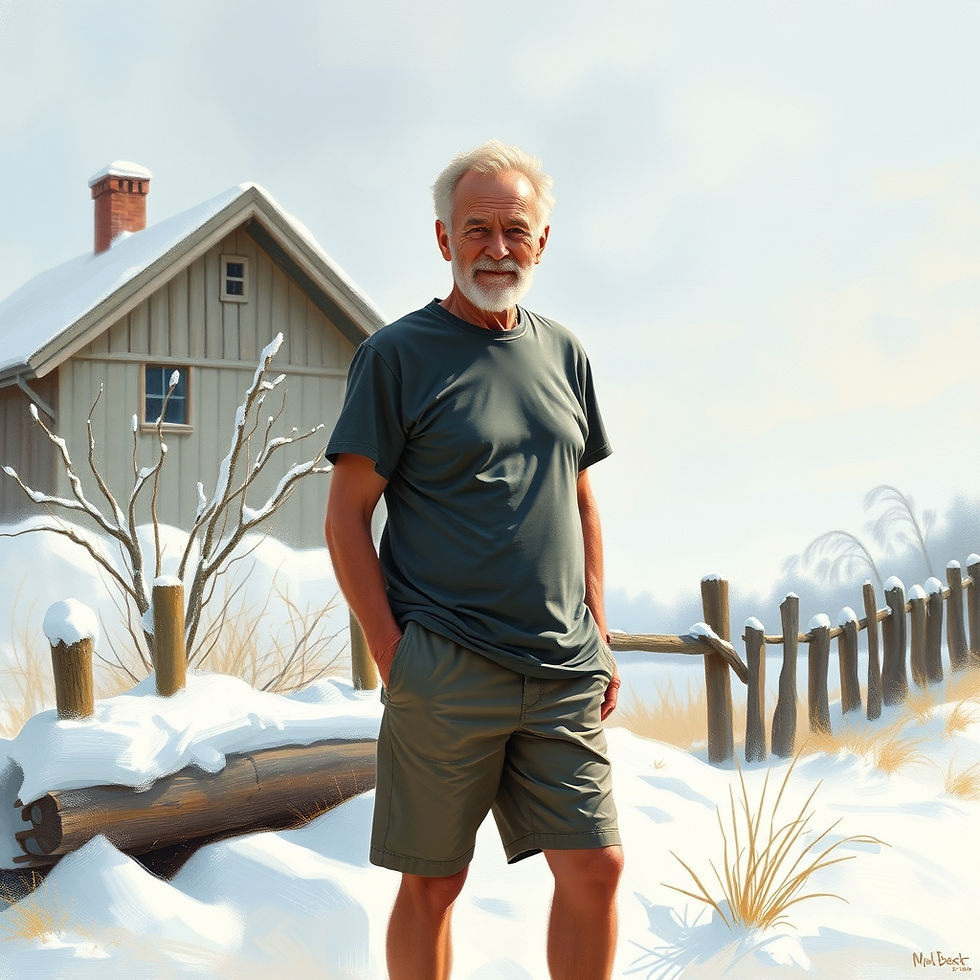Picking Pleasure Or Purpose
- drjunedarling1
- Jul 24, 2022
- 3 min read
“…I arise in the morning torn between a desire to improve the world and a desire to enjoy the world. This makes it hard to plan the day.” E.B. White
Maybe you too have felt like E.B. White, who is best known for his children’s books.
What’s the best thing to do with our lives? Should we relax, savor, and enjoy the world? Or should we challenge ourselves, get out there and do some good?
We could boil the dilemma down to this. Pleasure or purpose. Which is the path to the good life? The short answer is… both. The longer answer is…below.
The “Which-Path-Question” has been long debated – at least since the time of the Greeks.
Epicurus, though he probably had a more sophisticated philosophy, became known for the idea that happiness is simply maximizing one’s pleasurable moments and decreasing one’s painful experiences. The pleasurable path to the good life became known as “hedonic.”
But comfort wasn’t the goal for folks like Aristotle and Plato. They emphasized living a life of virtue and growth. One should behave in ways that were noble and worthwhile for their own sake.
Excellence, challenge, meaning, purpose, courage, justice, and kindness, these were recommended pursuits. This path to the good life became known as “eudaimonic.”
Over time the hedonic path to happiness got a bad name in a few circles. A life oriented toward more pleasure and less suffering was seen as vulgar and even unethical by some.
A few psychiatrists warned that a life primarily aimed toward pleasure and positive emotions led to the empty life rather than the good life. They felt that a good life requires purpose.
The hedonic path to happiness has made a comeback is recent years. Heavy-weights like Nobel Prize winner, Daniel Kahneman, view enjoyment and pleasure as extremely important to the good life. In fact Kahneman calls himself a “hedonic psychologist.”
This psychological and philosophical jousting has led to is an increase in research. Here are the preliminary findings.
First, and probably the most important, for us to know is this. If we want to live the “full life” – that is, the really good life; we’d probably better be doing at least some of both of these things - enjoying the world and improving it. Too much of either seems to leave people feeling less satisfied and less able to successfully function.
People who mainly have a pleasure orientation, who primarily seek a life of lovely sunsets and sticking their feet in the warm sand; seem to achieve less, be less productive, and may not be so happy over time.
But then, people who have mostly a eudaimonic approach, who spend all their time running marathons and saving the world; seem to have more stress and irritation.
Here’s the bottom line. Hedonia and eudaimonia, pleasure and purpose, are complementary. Positive mood and meaning go together into a state called flourishing, or the full life, or the really good life.
The studies indicate that those people who are flourishing, who are both getting their feet rubbed AND serving at the soup kitchen for example, have less cardiovascular disease and less physical illness in general. Flourishers also have greater ability to manage their emotions and are more able to connect with others. They are less of a burden to society, they have less impairment and contribute more.
But suppose, just for the sake of argument, we can only choose one path. Well then the researchers surmise, we’d better go for eudaimonic.
Eudaimonia seems to lead to more long term pleasure and building more long-term resources. We may be happy while we devour dark chocolate, but that’s over pretty quickly.
But stop. We do need, and we can have, a little chocolate in our lives. The researchers saw a definite decline in well-being for those who never had much enjoyment or relaxation. We need to take those moments on sandy beaches, to soak in the sunshine, to let our worries go.
AND we also need to set aside some time to serve others, improve ourselves, and make the world a better place. A random mixture of some pleasure and some purpose - that’s the general scheme of how to plan our day and our life.
Not a step-by-step-guide I know, but enough to start experimenting. We can make some plans for how we can BOTH enjoy our days AND make them meaningful.
How might more pleasure AND more purpose help us journey together to The Good Life?
(as always, if you are a subscriber, you can email me by replying to this blog. Only I will see it)



Comments